Turning vacant land into flourishing flower farms in Baltimore, with Kristin Dawson and Walker Marsh (Episode 180)
February 11th, 2015
Podcast: Play in new window | Download
Subscribe: Apple Podcasts | Podcast Index | RSS | More
Today’s episode invites you to explore one city’s efforts to grow flowers, a tiny parcel at a time.
Many of you may have seen links to an article that ran in The Baltimore Sun newspaper last November called “Advocates hope flower farms will take root in Baltimore.”
Past podcast guest Ellen Frost of Local Color Flowers was quoted in the article as saying “flowers are a good option for people who are interested in farming but want to try something different or have a niche that sets them apart from food growers.”
Cool idea, right?
So when Kristin Dawson reached out to talk with me about the research she was undertaking on behalf of Baltimore mayor Stephanie Rawlings-Blake, I was eager to learn more. Kristin opened my eyes to the fact that there are more than 10,000 vacant lots in the city, which is perhaps more prevalent across the country that you would think.
Kristin formerly worked for the City of Baltimore on vacant property issues (co-authoring a Land Banking plan), as well as food policy/urban agriculture, and other projects.
Her research on behalf of Baltimore had three goals: (a) blight elimination; (b) green jobs and (c) a way to support entrepreneurship in the city. She pointed out: “We’ve learned that cut flowers are one of the most lucrative things to grow.”
After I answered her questions, I turned my microphone to Kristin. I am thrilled to share our conversation with you. UPDATE: Kristin’s research is complete, and now the City’s staff is reviewing the findings and recommendations. The good news is that there will be more flower farming in the future for Baltimore. I’ll share more news as I receive it!
At Kristin’s suggestion, I have a bonus interview to share. She urged me to reach out to Walker Marsh of Tha Flower Factory.
He’s the first flower farmer who will raise cut flowers on a Baltimore-owned parcel land this year, facilitated by winning the Growing Green Design Competition. Walker’s background is as a field manager for Baltimore’s Real Food Farm.
In The Baltimore Sun article, he describes how he got involved with flower farming: “It is deeper than flowers for me. Once I was into it, I found I could calm myself. You have to have patience and be gentle, all the things that come with farming and gardening.”
Such truth! I know you’ll enjoy hearing his story and meeting this engaging new face of flower farming in the U.S.
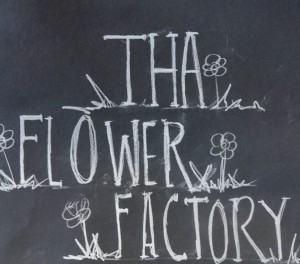 Check out Tha Flower Factory’s web site here.
Check out Tha Flower Factory’s web site here.
Follow and LIKE! Tha Flower Factory on Facebook here.
Follow Walker Marsh on Instagram here.
If you have any doubt about the rising excitement for growing domestic flowers, I sure hope that you’re as encouraged as I am by today’s guests.
We’ll have more stories about what’s happening on the Urban, Suburban and Rural landscape for American grown flowers in the coming months. Please send me your suggestions for future episodes.
ANNOUNCEMENTS
There are so many worthy crowd-funding projects going on right now and I urge you to check them out. This week I want to highlight two:
First, BLOOMTOWN.TV is a new reality web series about the mud, sweat and tears of the U.S. horticulture industry. The show’s creators, Eric Light and Stephanie Winslow, are based in St. Louis, Missouri, and have close ties to the floral and horticultural worlds there.
“Not only is there an abundance of rich, entertaining content, but we firmly believe that Bloomtown will encourage more people to buy plants and flowers, which means better sales across the industry!,” they say.
Bloomtown is in the midst of an ambitious Kickstarter campaign that runs through February 28th so there’s still time to check it out and contribute. And whether you can contribute or not, you’ll want to watch Bloomtown.tv’s fun trailer.
Slowflowers.com members Miranda Duschack and “Mimo” Davis of Urban Buds: City Grown Flowers are featured in the clip and the flowers grown by Slowflowers.com members Steve and Cheryl DuBois of Mossy Creek Farm appear, as Steve puts it: “in non speaking parts of the trailer.” Love the energy of this creative endeavor – so please check it out.
Next, not so long ago I featured Sid Anna Sherwood of Annie’s Flower Farm in Sequim, Washington, who had applied for a KIVA loan to purchase the assets of a farm she had been leasing.
Prior to interviewing her, I had not know about KIVA, an innovative “crowd-lending” program. All the funds donated are paid back by the recipient.
Other friends of Slowflowers.com, and past guests of this podcast, Steve and Sarah Pabody of Triple Wren Farms in the Bellingham, Washington, area, recently applied for a KIVA loan to help get their small flower farm to the next level this coming season.
They’ve raised three-quarters of their $4800 goal with more than a month to go – so it’s easy to help get Triple Wren to their ultimate loan amount, with a long as small as $5.
NOTE: Between the time this episode was recorded and its broadcast on February 11th, Triple Wren Farms achieved 100% funding of its KIVA loan! Whooo Hoo! Congrats Steve and Sarah!
Oh, and one follow-up. Several weeks ago we heard from Jonathan Webber who with his partner Jimmy Lohr own Pittsburgh’s greenSinner, an urban flower farm and floral design studio.
I asked Jonathan to share details of green Sinner’s Indiegogo campaign for infrastructure funds needed to prepare new land they had just purchased in the city limits of Pittsburgh.
 Their campaign has ended, and greenSinner’s Midsummer Hill Farm raised $4,701 toward their goal.
Their campaign has ended, and greenSinner’s Midsummer Hill Farm raised $4,701 toward their goal.
And I guess I’m going to get on my soapbox right now. You see, greenSinner didn’t meet their original goal of $10k, but they’re more than happy that the funds that were pledged, nearly one half of that goal, will support their project.
However, if they had launched that campaign on Kickstarter and missed the ultimate goal by even $1, they would not have access to any of those funds.
If you’re considering a crowdfunding campaign for your own floral project, please choose Indiegogo. I’m a huge fan of this platform for reasons too numerous to list here. Contact me offline if you wish to discuss further. And congratulations Jimmy and Jonathan! I know you didn’t reach your goal, but I also know how incredibly resourceful you will be with the funds you did raise! Now go get those seeds in the ground!
Thank you for downloading and listening to the Slow Flowers Podcast!
Each week I share with you our “download” count and we have hit 34,000 downloads to date. I’m encouraged to know more people are learning about the farmers and florists who keeping American-grown flowers flourishing.
As we approach Valentine’s Day, I urge you to Show your Love with a gesture of Local flowers. We have such a great community and people really seem to want each other to succeed. I take encouragement from the stories I hear – and from the stories I’m able to share with you.
So I thank you!!! If you like what you hear, please consider logging onto Itunes and posting a listener review.
The Slow Flowers Podcast is engineered and edited by Andrew Wheatley and Hannah Holtgeerts. Learn more about their work at shellandtree.com.









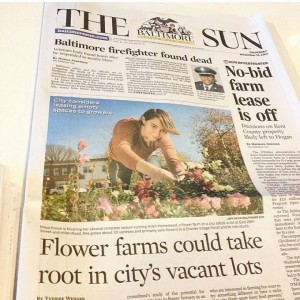
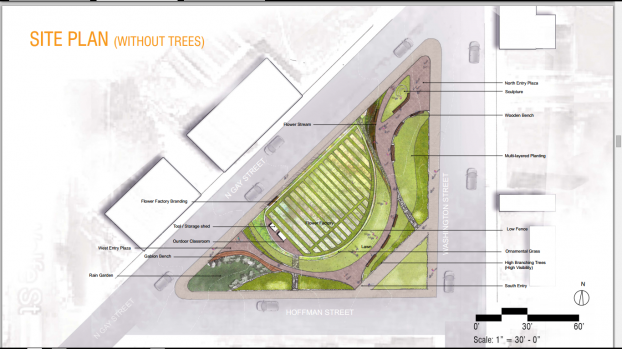
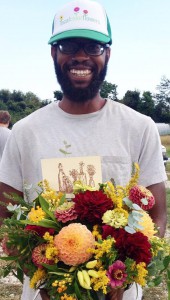
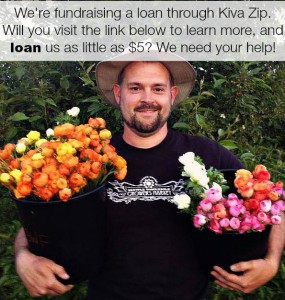
January 6th, 2016 at 8:58 am
[…] But as you learned in episodes of the Slow Flowers Podcast in the past year, Baltimore and Detroit are among the cities where the public-private partnerships may soon earmark underutilized land for flower farming. Earlier this year we hosted Walker Marsh of Tha Flower Farm in Baltimore who planned his first season in an exciting new community-supported parcel and researcher Kristin Dawson who was commissioned by the city of Baltimore study the viability of converting underutilized city land for flower farms. Then, of course, Lisa Waud announced the future plans for her own Detroit cut flower farm. […]